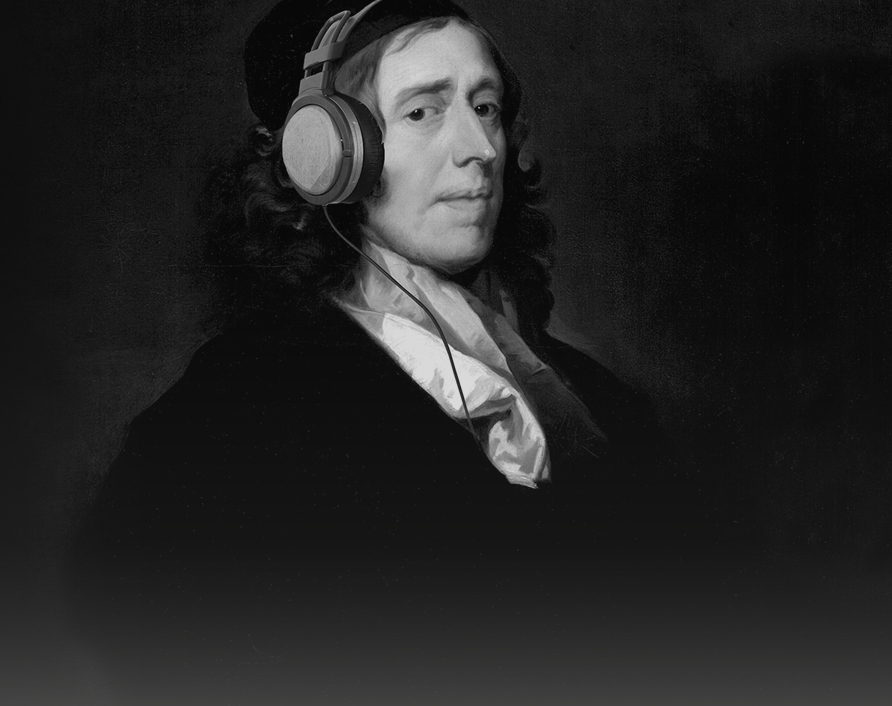Seen & Heard
“An Oration in Commemoration of the Independence of The United States of America” by Enos Hitchcock
Originally posted by David Hall on PlaceforTruth.org.
Enos Hitchcock (1744-1803) was a Harvard graduate (1767) and a chaplain for several brigades in the Colonial militia (seeing battle at Ticonderoga, Saratoga, Valley Forge, and West Point). He also served as chaplain of the Continental Army from 1779-1780. He preached in other New England churches after the Revolutionary War, prior to settling as the pastor of the First Congregational Church in Providence, Rhode Island, from 1783 until his death. During his pastorate, the church grew and built an impressive church in 1794-75 at the corner of Benefit and Benevolent streets. Later his church which was Arminian under his leadership became Unitarian, shortly after his time.
Among his other fiery sermons was a 1780 sermon accusing Benedict Arnold of ‘perfidy” (see: https://rihs.wordpress.com/2013/11/24/a-perfidious-wretch-hitchcocks-ser...). He was involved in various causes, ranging from education to abolition, even purchasing a slave but manumitting him in his will. His diaries were published in 1899 and are available at: https://archive.org/details/diaryofenoshitch00hitc.
Hitchcock delivered this anniversary sermon seventeen years after the Declaration of Independence in a Baptist church, preaching this on the same day as Samuel Miller’s sermon on the anniversary of America’s Independence (see link to previous sermon). However, he begins with a passage from the Declaration rather than from Scripture. He believed the providential wonders seen here were also of benefit to all mankind. This sermon celebrated the birth day of a nation, born “when your country was bleeding at every pore, without a friend among the nations of the earth. God alone was her friend! The justice of her cause was registered in the high chancery of heaven. The stars fought in their courses for her; and the event justified a step which had so astonished the world.”
This great land bore tremendous promise for industry, agriculture, and development—surely, he preached, the providential blessing of God. To match these natural resources, Hitchcock also noted: “The features of our policy have a strong resemblance to the magnificent and well-proportioned features of our country. No longer do we subscribe to the absurd doctrine of the divine right of kings, no longer bow our necks to the galling yoke of foreign legislation. Independent of these servilities, we enjoy the divine right of governing ourselves.” He was a thorough-going republican who detested absolute power, anarchy, and tyranny. He reflected the wisdom of the day: “Every good government must exist somewhere between absolute despotism and absolute democracy. In either of these extremes, neither liberty nor safety can be enjoyed.”
He also thought it self-evident that: “The state where the people choose their magistrates for a fixed period, and often assemble to exercise the sovereignty, is a democracy, and is called a republic; such were Athens and Rome, and such are the United States of America.” He saw the republicanism of America as a moderate form, which “was most congenial to the rights of man, and the enjoyment of equal liberty—that liberty, which to independence unites security—which to the most ample elective powers, unites strength and energy in government.”
Hitchcock also realized the imperfection of governments and the need for virtue among the electors: “The most perfect model of government that imagination can form will be useless, if the state of mankind renders it impracticable.” He rendered a quite glowing assessment of the office-holders in all branches as satisfying the high demands of representative government. He also spied “American genius springing forward in useful arts, projecting great and astonishing enterprizes, tearing down mountains and filling up vallies, and making efforts unknown in those countries where despotism renders everything precarious, and where a tyrant reaps what slaves have sown.”
Not every revolution would automatically advance liberty: “Indeed a dark cloud at present vails the fair countenance of liberty in France. Inexperienced in the science of a free government, and unprepared for the enjoyment of it by a previous course of education, of intellectual improvement, and moral discipline, they have tarnished their glory by excesses; and, in the paroxysms of their zeal, have carried excess to outrage.”
He preached that “Knowledge and true religion go hand in hand. When the former is obscured, the latter is mutilated, and enveloped in the shades of superstition and bigotry. And whenever the civil power has undertaken to judge and decide concerning truth and error, to oppose the one, while it protected the other, it has invariably supported bigotry, superstition and nonsense.”
In contrast to Miller’s sermon from last week, this one seldom refers to biblical texts. His sermon concluded:
May we ever show ourselves worthy of the blessings we enjoy, and never tarnish the bright lustre of this day, by any unbecoming excesses. Americans! think of the many privileges which distinguish your condition. Be grateful for your lot; and let your virtue secure what your valour, under God, hath obtained; and transmit to latest posterity the glorious inheritance. May the political edifice erected on the theatre of this new world, afford a practical lesson of liberty to mankind, and become in an eminent degree the model of that glorious temple of universal liberty which is about to be established over the civilized world.
This sermon may be found online at: http://consource.org/document/an-oration-in-commemoration-of-the-indepen....
To receive regular updates be sure to subscribe to Place for Truth.
http://www.placefortruth.org/blog/%E2%80%9C-oration-commemoration-independence-united-states-america%E2%80%9D-enos-hitchcock
http://www.placefortruth.org/article-suscribe

The Alliance of Confessing Evangelicals is member supported and operates only by your faithful support. Thank you.

















 © Alliance of Confessing Evangelicals
© Alliance of Confessing Evangelicals


